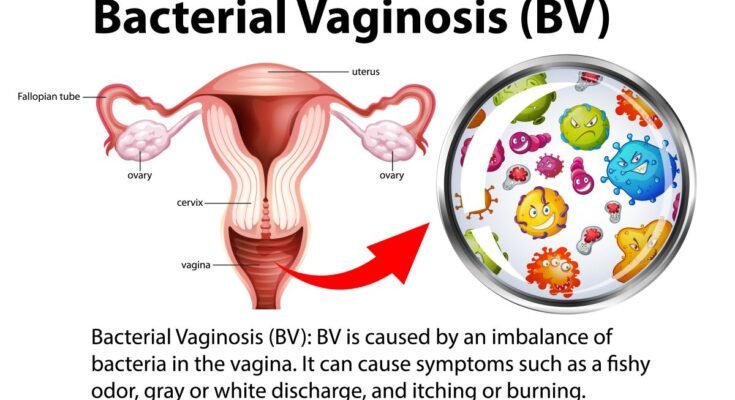Pregnancy is a beautiful yet complex time, filled with excitement and anticipation. But amidst the joy, expectant mothers can face numerous health challenges, one of which is Bacterial Vaginosis (BV). Understanding BV, its implications during pregnancy, and the necessary precautions can help ensure both mother and baby stay healthy.
What is Bacterial Vaginosis?
Bacterial Vaginosis (BV) is a common vaginal infection caused by an imbalance of bacteria in the vagina. While it can affect women of all ages, pregnant women are particularly susceptible. BV occurs when the natural balance of bacteria in the vagina is disrupted, leading to an overgrowth of harmful bacteria.
Common Symptoms of BV
BV often presents with a range of symptoms, which can vary from mild to severe. Common indicators include:
- Unusual Discharge: A thin, gray, or white discharge with a fishy odor.
- Vaginal Itching: Persistent itching around the vagina.
- Burning Sensation: A burning feeling during urination.
Recognizing these symptoms early and seeking medical advice is crucial for managing BV effectively, especially during pregnancy.
The Link Between BV and Pregnancy
BV can significantly impact pregnancy, potentially leading to complications for both the mother and the baby. Understanding these risks is vital for expectant mothers.
Potential Complications
If left untreated, BV can lead to several complications during pregnancy:
- Preterm Birth: BV increases the risk of premature labor, which can result in preterm birth.
- Low Birth Weight: Babies born to mothers with untreated BV are more likely to have a low birth weight.
- Infections: BV can increase the risk of developing other infections, including pelvic inflammatory disease (PID).
These complications highlight the importance of monitoring and managing BV during pregnancy.
Risk Factors and Precautions
Certain factors can increase the likelihood of developing BV during pregnancy. Being aware of these risk factors and taking preventive measures can significantly reduce the chances of contracting BV.
Key Risk Factors
Several factors can contribute to the development of BV during pregnancy:
- Previous BV Infections: A history of BV can increase the risk of recurrence.
- Multiple Sexual Partners: Having multiple sexual partners can disrupt the vaginal flora, leading to BV.
- Douching: Douching can upset the natural balance of bacteria in the vagina.
Practical Precautions
To minimize the risk of BV, pregnant women can take practical precautions:
- Maintain Hygiene: Practice good vaginal hygiene without douching.
- Safe Sexual Practices: Limit the number of sexual partners and use protection.
- Regular Check-Ups: Attend all prenatal appointments and communicate any concerns to your healthcare provider.
By understanding these risk factors and precautions, expectant mothers can better protect themselves against BV.
Diagnosis and Treatment
Early diagnosis and treatment of BV during pregnancy are essential to prevent complications. Here’s how BV is diagnosed and treated in pregnant women.
How is BV Diagnosed?
Diagnosing BV typically involves a few simple steps:
- Medical History: The healthcare provider will review the patient’s medical history and symptoms.
- Pelvic Exam: A pelvic exam may be conducted to look for signs of BV.
- Lab Tests: Samples of vaginal discharge may be taken and analyzed to confirm the presence of BV.
Safe Treatment Options
Treatment for BV during pregnancy focuses on eliminating the infection while ensuring the safety of both mother and baby:
- Antibiotics: Oral or topical antibiotics are commonly prescribed to treat BV.
- Follow-Up: Regular follow-ups with the healthcare provider ensure the infection is fully resolved.
It’s crucial for pregnant women to follow their treatment plan and complete the entire course of antibiotics to prevent recurrence.
The Importance of Seeking Medical Advice
Seeking medical advice at the first sign of BV symptoms is paramount for protecting the health of both mother and baby.
Early Detection is Key
Early detection and treatment of BV can prevent serious complications. Pregnant women should not hesitate to contact their healthcare provider if they notice any symptoms of BV.
Ongoing Monitoring
Regular prenatal check-ups and open communication with healthcare providers are crucial for monitoring and managing BV. These appointments provide an opportunity for expectant mothers to discuss any concerns and receive appropriate care.
Support and Resources
Healthcare providers can offer valuable support and resources to help manage BV during pregnancy. This includes information on safe treatment options, preventive measures, and what to expect during the course of the infection.
Navigating BV During Pregnancy
Pregnancy is a time of joy and anticipation, but it’s also a period when the health of both mother and baby is paramount. Bacterial Vaginosis (BV) can pose significant risks during this time, making awareness and early intervention critical.
By understanding what BV is, recognizing its symptoms, and knowing the potential complications, expectant mothers can take proactive steps to safeguard their health. Identifying risk factors and adopting practical precautions can reduce the likelihood of contracting BV. And, should BV occur, early diagnosis and treatment are essential to prevent complications.
Remember, seeking medical advice at the first sign of BV symptoms is crucial. Regular check-ups and open communication with healthcare providers ensure ongoing monitoring and support.
Read also : Why the Hidden Halo Engagement Ring is the Perfect Choice for the Modern Bride


:max_bytes(150000):strip_icc()/VWH-TheresaChiechi-HowtoStopRecurringBacterialVaginosis-Standard-ee934267a40941da8aed55de0b8f6aa5.jpg)


